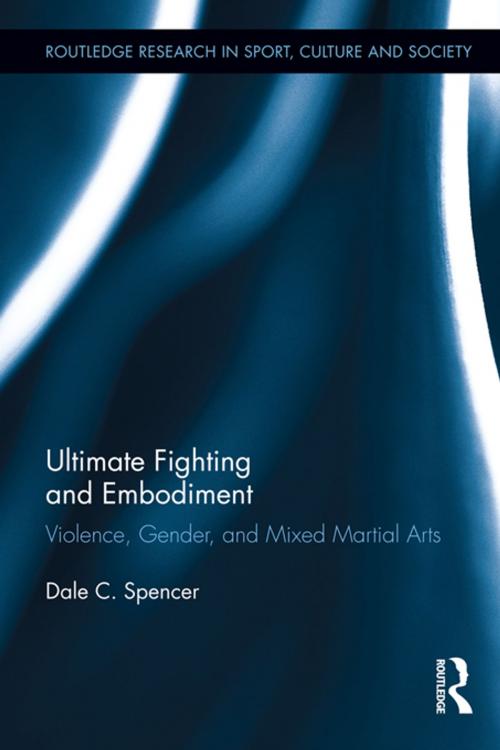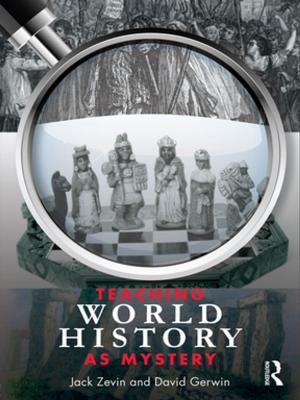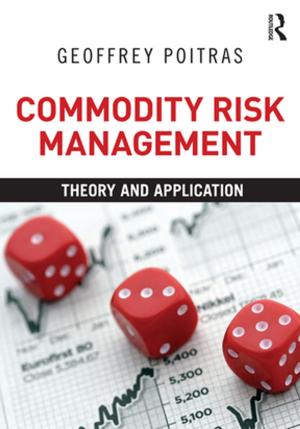Ultimate Fighting and Embodiment
Violence, Gender and Mixed Martial Arts
Nonfiction, Social & Cultural Studies, Social Science, Gender Studies, Men&, Sports, Martial Arts & Self Defence, Reference| Author: | Dale C. Spencer | ISBN: | 9781136499159 |
| Publisher: | Taylor and Francis | Publication: | June 19, 2013 |
| Imprint: | Routledge | Language: | English |
| Author: | Dale C. Spencer |
| ISBN: | 9781136499159 |
| Publisher: | Taylor and Francis |
| Publication: | June 19, 2013 |
| Imprint: | Routledge |
| Language: | English |
Mixed martial arts (MMA) is an emergent sport where competitors in a ring or cage utilize strikes (punches, kicks, elbows and knees) as well as submission techniques to defeat opponents. This book explores the carnal experience of fighting through a sensory ethnography of MMA, and how it transgresses the cultural scripts of masculinity in popular culture. Based on four years of participant observation in a local MMA club and in-depth interviews with amateur and professional MMA fighters, Spencer documents fighters' training regimes and the meanings they attach to participation in the sport. Drawing from the philosophical phenomenology of Martin Heidegger, Maurice Merleau-Ponty and Jean-Luc Nancy, this book develops bodies-centered ontological and epistemological grounding for this study. Guided by such a position, it places bodies at the center of analysis of MMA and elucidates the embodied experience of pain and injury, and the sense and rhythms of fighting.
Mixed martial arts (MMA) is an emergent sport where competitors in a ring or cage utilize strikes (punches, kicks, elbows and knees) as well as submission techniques to defeat opponents. This book explores the carnal experience of fighting through a sensory ethnography of MMA, and how it transgresses the cultural scripts of masculinity in popular culture. Based on four years of participant observation in a local MMA club and in-depth interviews with amateur and professional MMA fighters, Spencer documents fighters' training regimes and the meanings they attach to participation in the sport. Drawing from the philosophical phenomenology of Martin Heidegger, Maurice Merleau-Ponty and Jean-Luc Nancy, this book develops bodies-centered ontological and epistemological grounding for this study. Guided by such a position, it places bodies at the center of analysis of MMA and elucidates the embodied experience of pain and injury, and the sense and rhythms of fighting.















